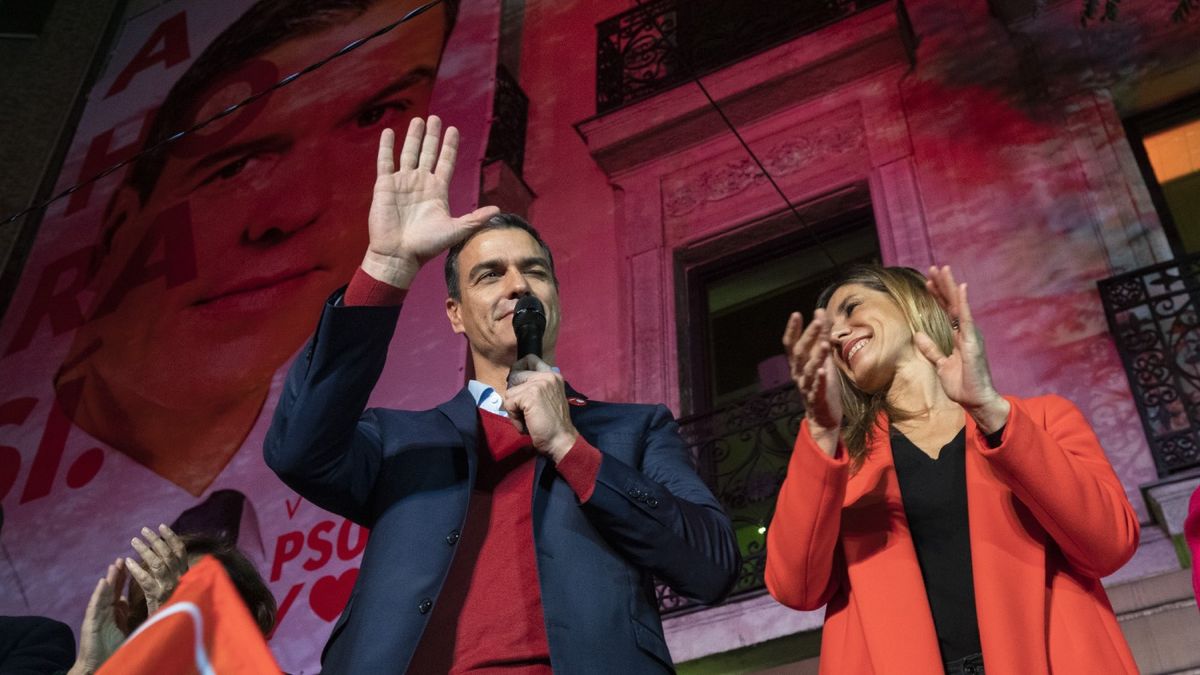In recent political developments, the PSOE of Castilla y León has ramped up its criticisms of Prime Minister Pedro Sánchez, reflecting growing tensions within Spain’s Socialist Party. Local leaders have expressed concerns over Sánchez’s policies and decisions, arguing that they do not align with the interests of the region. This internal conflict highlights the challenges faced by the PSOE as it navigates its governance strategy amidst rising discontent and calls for greater regional autonomy. As the party grapples with these divisions, the implications for its future cohesion and electoral prospects are significant.
Félix Bolaños has addressed the growing unrest within the PSOE of Castilla y León following Ferraz’s controversial decision to suspend primaries in the region, a move that has sparked significant backlash among party members. Bolaños emphasized the need for dialogue within the PSOE, asserting that the decision was “reasonable” to prioritize the upcoming Federal Congress.
His remarks come amid rising dissent, with notable figures such as Andrea Fernández, a former member of Sánchez’s Federal Executive, vocalizing their discontent. Fernández criticized the party’s direction, stating, “I do not want a PSOE at the service of the cosa nostra,” and condemned the inconsistent application of party rules. She also referenced Sánchez’s previous term “mud machine,” which he used to criticize certain media narratives, implying a similar tactic is being employed within the party.
Luis Tudanca, the current leader of the PSOE in Castilla y León, has also rejected the suspension, arguing that it effectively nullifies all autonomous congresses held in 2021, the same year as the 40th Federal Congress. Tudanca contends that there is no explicit rule preventing the regional congress from proceeding and insists that the upcoming Federal Congress should provide clarity on this issue.
Ana Sánchez, the PSOE’s Organization Secretary in the region, echoed these sentiments, calling for “firmness” in response to what she termed an “absurdity.” She stressed the importance of respecting the efforts of the federation’s members, demanding that their voices be restored.
Tudanca, who had sought to expedite the regional congress, appears to have strong backing from local socialist militants, with a recent vote showing overwhelming support—105 in favor to just 14 against the proposal. As tensions escalate, the PSOE faces a pivotal moment that will shape its cohesion and future direction in Castilla y León.
Frequently Asked Questions
What triggered the criticism of Pedro Sánchez by the PSOE of Castilla y León?
The criticism arose following Ferraz’s decision to suspend primaries in the region, which many local members viewed as an affront to their autonomy and interests. This decision has led to significant backlash and discontent within the federation.
Who are the key figures involved in the criticism?
Key figures include Félix Bolaños, who defended the decision; Luis Tudanca, the regional leader of the PSOE in Castilla y León, who strongly opposed it; and Andrea Fernández, a former member of Sánchez’s Federal Executive, who articulated her concerns about the party’s direction.
What were Bolaños’s main arguments in support of the suspension?
Bolaños described the suspension as “reasonable,” emphasizing the need to prioritize the party’s Federal Congress. He called for unity and dialogue within the party to address the issues at hand.
What specific concerns did Andrea Fernández express?
Fernández expressed her desire for the PSOE not to become beholden to self-serving interests, describing the situation as akin to being “at the service of the cosa nostra.” She criticized the inconsistent application of party rules and the narrative being imposed from higher levels.
How did Luis Tudanca respond to the suspension of primaries?
Tudanca rejected the suspension, arguing that it invalidates all autonomous congresses held in 2021 and called for a clarification of the rules. He has positioned himself as a strong advocate for the rights and voices of regional members.
What was the outcome of the vote regarding the regional congress?
The vote to expedite the regional congress showed overwhelming support, with 105 votes in favor and only 14 against. This demonstrates an intense desire among local militants to move forward with their leadership and agenda.
What are the broader implications of this internal conflict?
This conflict highlights significant divisions within the PSOE, raising questions about party cohesion and the effectiveness of Sánchez’s leadership. The outcome could impact the PSOE’s future strategies and its relationship with regional federations.
How do members of the PSOE in Castilla y León feel about the situation?
Many members feel they need help with federal decision-making processes. To ensure their concerns are addressed, they are advocating for more respect and representation within the party.
Conclusion
The escalating tensions within the PSOE of Castilla y León reflect more profound issues of governance, representation, and internal party dynamics. The criticism directed at Pedro Sánchez following the suspension of regional primaries underscores a growing discontent among local members who feel sidelined in decision-making processes. As figures like Luis Tudanca and Andrea Fernández voice their opposition, the need for dialogue and clarity within the party becomes increasingly urgent. This internal conflict not only threatens the cohesion of the PSOE but also raises critical questions about its ability to effectively address regional concerns. The outcome of this situation could significantly influence the party’s strategies and its relationship with grassroots members moving forward, making it a pivotal moment in Spanish politics.



